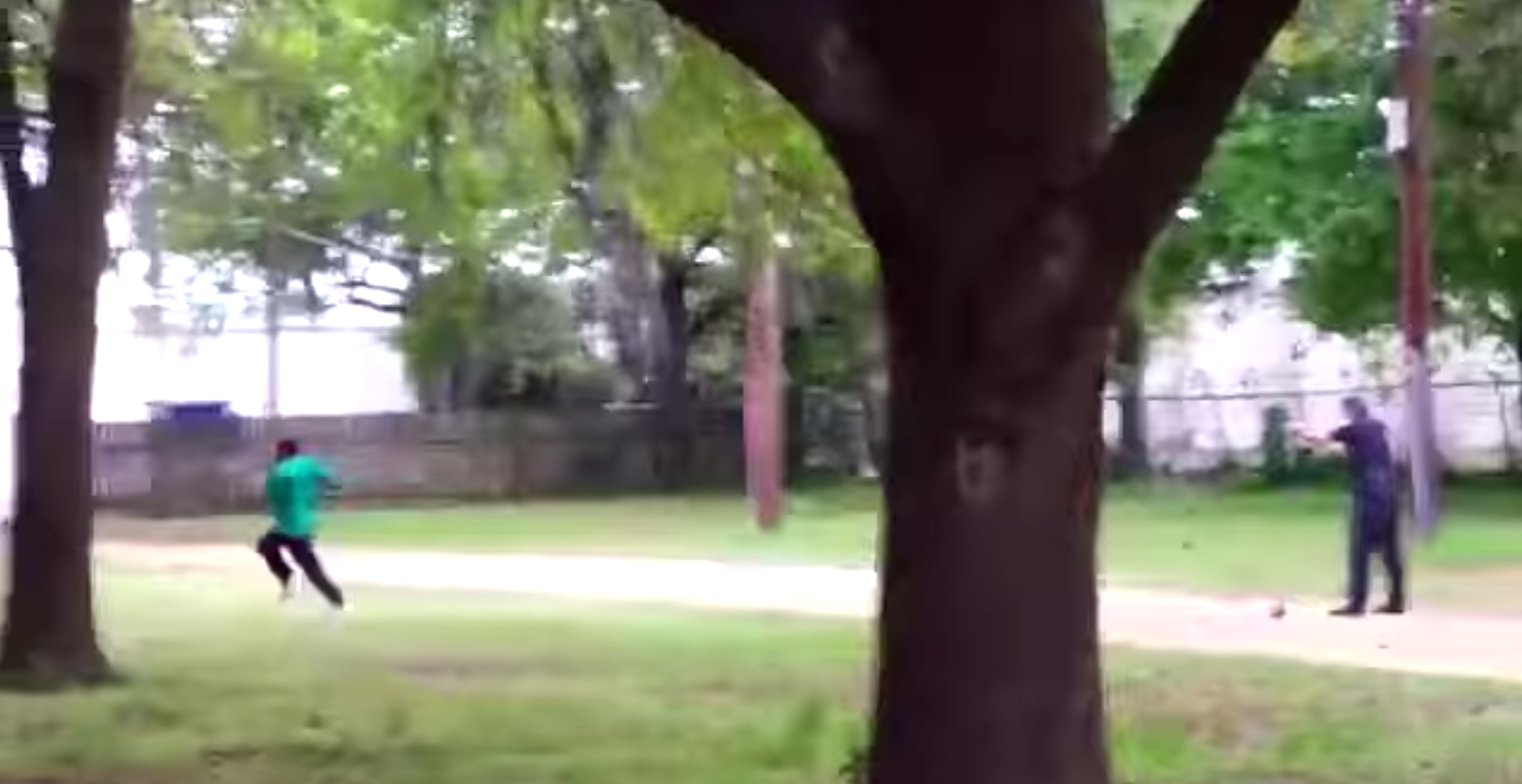Nearly getting away with murder: How the Walter Scott video exposed a corrupt system
It's quite possible that Michael Slager would be free today


A free daily email with the biggest news stories of the day – and the best features from TheWeek.com
You are now subscribed
Your newsletter sign-up was successful
He probably would have gotten away with it.
That's the sobering reality of the video of South Carolina police officer Michael Slager shooting Walter L. Scott as he ran away, not posing the slightest threat to the officer. The utter indifference to human life evident in the video, shot by Feidin Santana, is horrifying. As Scott's father put it, "The way he was shooting that gun, it looked like he was trying to kill a deer." After Scott was felled by at least one of eight shots, Slager occupied himself with handcuffing Scott and possibly trying to plant evidence rather than making any immediate attempt to save his life. The phrase "cold-blooded killing" could have been invented for this shooting.
After the video surfaced, the relevant local authorities, to their credit, acted promptly and justly. Slager was fired by the police department and charged with Scott's murder by the district attorney. The killing was denounced by South Carolina's Republican governor and its two Republican senators. In this case, clear video evidence pierced the thin blue line.
The Week
Escape your echo chamber. Get the facts behind the news, plus analysis from multiple perspectives.

Sign up for The Week's Free Newsletters
From our morning news briefing to a weekly Good News Newsletter, get the best of The Week delivered directly to your inbox.
From our morning news briefing to a weekly Good News Newsletter, get the best of The Week delivered directly to your inbox.
And yet, if it wasn't for the pure chance of Slager's actions being videotaped, he probably would have gotten off scot-free. Without videotaped evidence, stories of officers fearing for their lives before using deadly force can be difficult to dispute, and local police departments have little incentive to conduct extensive, critical investigations of the self-justifications of officers who kill. Even worse, they do have incentives to cover up even the most serious police misconduct.
"Americans are bombarded with evidence that police officers who use excessive or fatal force will go to great lengths to protect themselves and make sure they face no legal repercussions," says Heather Ann Thompson, a professor of history at Temple University who specializes in issues of criminal justice. "From the state police's bloody retaking of Attica in 1971, to the recent police officer killing of a citizen in South Carolina, cover-up is the first line of defense."
This tendency to cover up represents a very serious systematic problem. A great deal of the criminal justice system depends on the honesty of law enforcement officials. Many criminal prosecutions depend on police testimony, and we often must rely on the investigations of local police when potential cases of misconduct arise. Pervasive dishonesty both lets individual bad actors escape punishment and undermines essential law enforcement activities.
As Jeet Heer details at The New Republic, the social science literature shows that our trust in the police is often not warranted. "Testilying" (police giving knowingly false testimony in court) and "reportilying" (police producing reports that are knowingly false) are dismayingly common. The prosecutors theoretically charged with checking police behavior are all too likely to be in cahoots with them, rather than acting as a watchdog. Within the system, most people have nothing to gain and much to lose by aggressively pursuing police misbehavior.
A free daily email with the biggest news stories of the day – and the best features from TheWeek.com
The immediate response of the North Charleston police department to Scott's killing is a case in point. Without the knowledge that the killing had been videotaped, the department gave an account of the killing that was brazenly false. This tall tale was straightforwardly reported by local media, and probably would have set the narrative that led to Slager's exoneration had the videotape not surfaced.
This is particularly disturbing because the use of deadly force is hardly unusual. Although it's only the second week of April, 11 people have been killed by police officers in South Carolina so far this year. Many or all of these applications of deadly force may have been justified, of course. But it is very difficult to trust the process that finds the overwhelming majority of these cases to be so. And it is very, very hard to believe that Scott's case is an aberration.
One upshot of this case is to demonstrate the vital importance of the First Amendment right of citizens to film the behavior of police officers who are on duty. As The Washington Post's Radley Balko explains, despite the hostility of police officers to being filmed, recording their behavior while on duty is protected by the First Amendment in all 50 states. Citizens should be educated about this right and make use of it. At worst, one result of the killing of Walter Scott is that more officers will not expect that they can kill unarmed and unthreatening citizens with impunity.
Scott Lemieux is a professor of political science at the College of Saint Rose in Albany, N.Y., with a focus on the Supreme Court and constitutional law. He is a frequent contributor to the American Prospect and blogs for Lawyers, Guns and Money.
